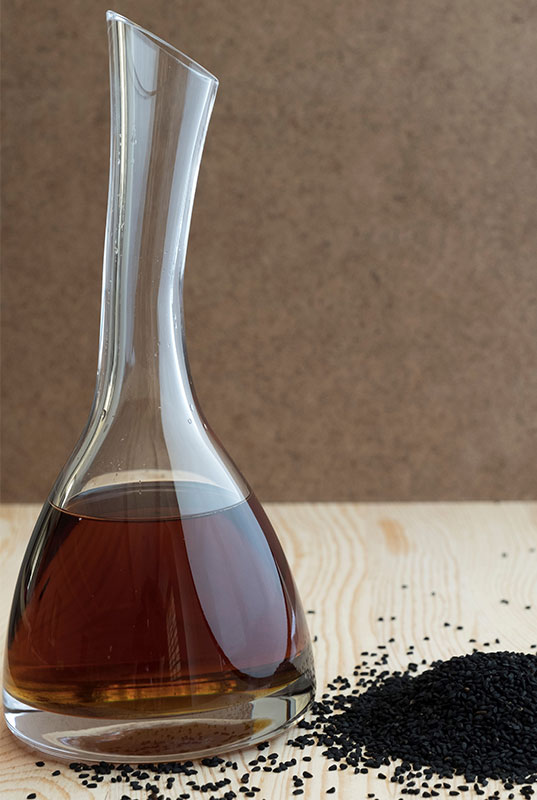Cold Pressed Oil: Natural Wellness From Turkey’s Rich Agricultural Heartlands
Cold pressed oil is gaining global attention as one of the purest and most nutrient-rich types of oils available for culinary, cosmetic, and therapeutic use. Unlike refined oils that are exposed to high temperatures, chemical solvents, and industrial processing, cold pressed oils are extracted mechanically from seeds, nuts, or fruits using a traditional pressing method that keeps temperatures below 50°C. This gentle technique preserves the natural flavor, aroma, color, and—most importantly—the bioactive compounds such as essential fatty acids, vitamins, polyphenols, and antioxidants. From olive oil to black seed, sesame, flaxseed, and laurel berry oil, Turkey is emerging as a key global supplier of cold pressed oils, thanks to its unique climate, biodiversity, and centuries-old oil extraction traditions.
In regions such as Aegean Turkey (e.g., İzmir, Aydın) and Southeastern Anatolia (e.g., Şanlıurfa, Mardin, Hatay), cold pressing has deep roots in Turkish agricultural practices. These areas are home to indigenous oilseed crops, such as sesame and black cumin (Nigella sativa), and also cultivate high-quality olives, flax, and laurel berries that thrive in Turkey’s Mediterranean climate. This optimal environment, combined with increasing investments in modern cold-pressing facilities, positions Turkey as a leading exporter of organic, extra-virgin, cold pressed oils to Europe, the Middle East, and Asia. According to a report by the Turkish Ministry of Agriculture, the export value of Turkey’s plant-based cold pressed oils has seen double-digit growth in the last five years, especially as consumers turn away from refined oils due to their lower nutritional value.
One of the primary health advantages of cold pressed oil is that it retains its unsaturated fatty acids, particularly omega-3 and omega-6, which are crucial for cardiovascular and brain health. Additionally, cold pressed oils contain natural antioxidants such as tocopherols (vitamin E) and phenolic compounds, which combat free radicals, support cellular repair, and may reduce the risk of chronic conditions such as heart disease, type 2 diabetes, and certain cancers. A review published in Nutrients (DOI: 10.3390/nu14091806) confirms that cold pressed oils maintain a higher level of antioxidants compared to refined oils and have anti-inflammatory and anti-microbial properties, making them valuable for both dietary and topical use.
In Turkey, cold pressed olive oil is perhaps the most iconic example, especially the Ayvalık and Edremit varieties, known for their rich polyphenol content and low acidity. However, other cold pressed oils are rapidly gaining attention, such as cold pressed black seed oil, long used in Turkish folk medicine for respiratory and immune support. Similarly, cold pressed sesame oil from Şanlıurfa and laurel berry oil from Hatay are valued for their skin-healing and antifungal benefits. Cold pressing ensures that these oils preserve their unique compounds like thymoquinone in black seed oil or lauric acid in laurel oil, which are otherwise degraded by heat in conventional processing.
The global clean beauty and functional food movements have also contributed to the rising demand for Turkish cold pressed oils. Small Turkish producers are responding to this trend by offering certified organic, non-GMO oils, often made in stone mills or slow-screw presses, which meet international food safety standards. Turkish cold pressed oils are also used in traditional products such as Aleppo soap, herbal massage oils, and plant-based supplements. As the European Food Safety Authority (EFSA) and other global regulatory bodies emphasize transparency in food labeling, Turkey’s producers are increasingly focusing on cold press certification, traceability, and eco-friendly packaging to meet the expectations of international consumers.
From a culinary standpoint, cold pressed oils add depth of flavor and aroma to dishes. They are ideal for raw use in salads, dips, and marinades, though some like cold pressed sesame or olive oil can also be lightly heated. Their low oxidation levels and high antioxidant content make them more shelf-stable compared to many unrefined oils. Many Turkish chefs and health-conscious home cooks prefer cold pressed oils not only for their flavor but also for their natural health benefits and clean label status.
In conclusion, cold pressed oils represent a fusion of ancient tradition and modern health science, and Turkey is quickly becoming a leader in this growing market. With its rich agricultural diversity, ideal climate, and commitment to quality production, Turkey offers a wide variety of nutrient-dense, therapeutic oils that are perfect for culinary use, wellness routines, and clean beauty applications. As consumers continue to look for natural, functional ingredients, cold pressed oils from Turkey stand out for their purity, sustainability, and health-promoting properties.





